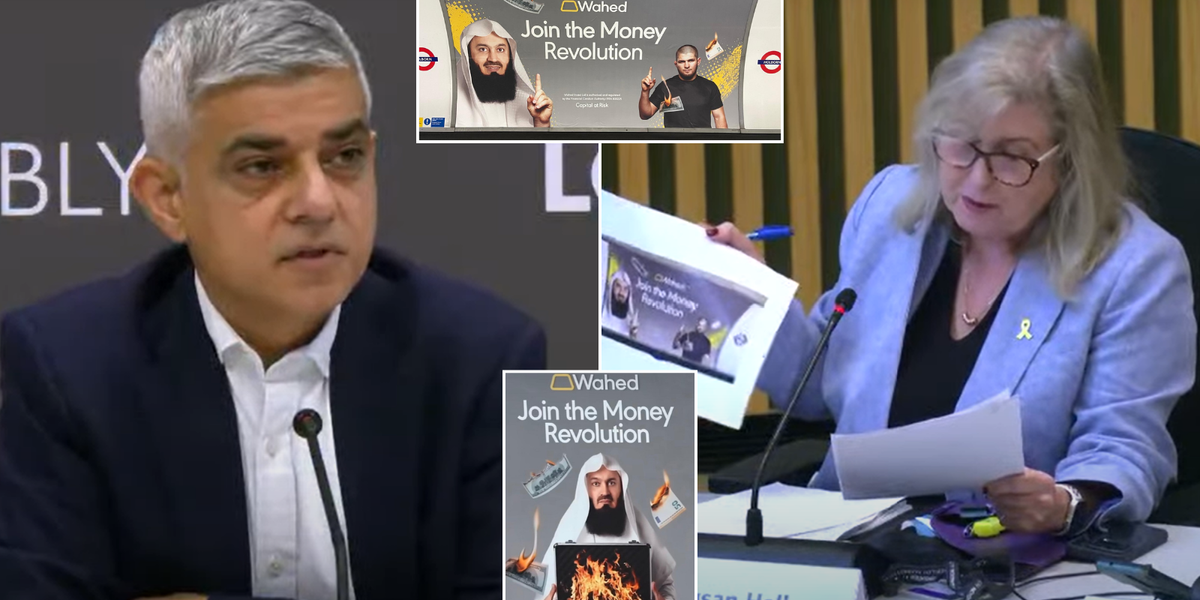Sadiq Khan’s Response to Controversial TfL Advertisements: A Closer Look
In a recent development that has stirred significant debate in London, Mayor Sadiq Khan has pledged to take urgent action regarding a controversial series of advertisements displayed across the Transport for London (TfL) estate. The ads, promoting the Islamic finance firm Wahed, feature prominent figures: Islamic preacher Ismail ibn Musa Menk, known as "Mufti Menk," and former UFC fighter Khabib Nurmagomedov, who is linked to Russian warlord Ramzan Kadyrov. This situation has raised questions about the appropriateness of the content being displayed in a public transport system that serves a diverse population.
The Controversial Figures
Mufti Menk has a contentious history, having been banned from entering Singapore in 2017 due to what authorities described as "unacceptable… segregationist and divisive teachings." Similarly, in 2018, he faced a two-year ban from Denmark for similar reasons. His past statements, including derogatory remarks about homosexuality, have further fueled criticism. In contrast, Khabib Nurmagomedov, who has close ties to Kadyrov—a known ally of Russian President Vladimir Putin—has also drawn scrutiny. Kadyrov has been known to bestow lavish gifts upon Nurmagomedov, including luxury cars and honorary citizenship of Chechnya.
TfL’s Initial Review
Despite the backlash, TfL initially confirmed that the advertisements had been reviewed and deemed compliant with their advertising policy. This decision has been met with skepticism, particularly from Conservative London Assembly member Susan Hall, who highlighted the apparent inconsistency in TfL’s advertising standards. Hall pointed out that while the ads featuring Menk and Nurmagomedov were allowed, other advertisements—such as those promoting a comedy show featuring a hot dog—were swiftly banned.
A Call for Reassessment
During a recent session of Mayor’s Question Time, Hall raised her concerns directly with Khan, questioning the rationale behind allowing the Wahed ads while enforcing strict guidelines on other content. She emphasized the disparity in treatment, stating, "If Wahed had wanted to advertise their platform with a high-calorie meal on the tube, it would be banned, but apparently a preacher banned from other countries for promoting religious discord is fine?" Hall’s comments underscore a growing frustration with what many perceive as a double standard in TfL’s advertising policies.
Khan’s Commitment to Review
In response to Hall’s inquiries, Khan acknowledged that he had not yet reviewed the specific advertisements but expressed his willingness to investigate the matter further. He stated, "I’m more than happy to look into that," indicating a commitment to reassess the appropriateness of the ads in question. Following the session, a spokeswoman for the Mayor reiterated that Khan condemns any language that fosters division within London’s diverse communities and clarified that he does not directly approve or decide which ads run on the TfL network.
The Broader Implications
The controversy surrounding these advertisements raises important questions about the role of public transport systems in promoting inclusivity and respect for all communities. As London continues to grapple with issues of diversity and representation, the scrutiny of TfL’s advertising policies may lead to broader discussions about the types of messages that are deemed acceptable in public spaces.
Conclusion
As Sadiq Khan prepares to take a closer look at the controversial Wahed advertisements, the situation serves as a reminder of the complexities involved in managing public messaging in a city as diverse as London. The outcome of this review could have significant implications for TfL’s advertising policies and their commitment to fostering an inclusive environment for all Londoners. As the debate unfolds, it will be crucial for city leaders to navigate these challenges thoughtfully, ensuring that public spaces reflect the values of respect and unity that are essential to the fabric of London.
